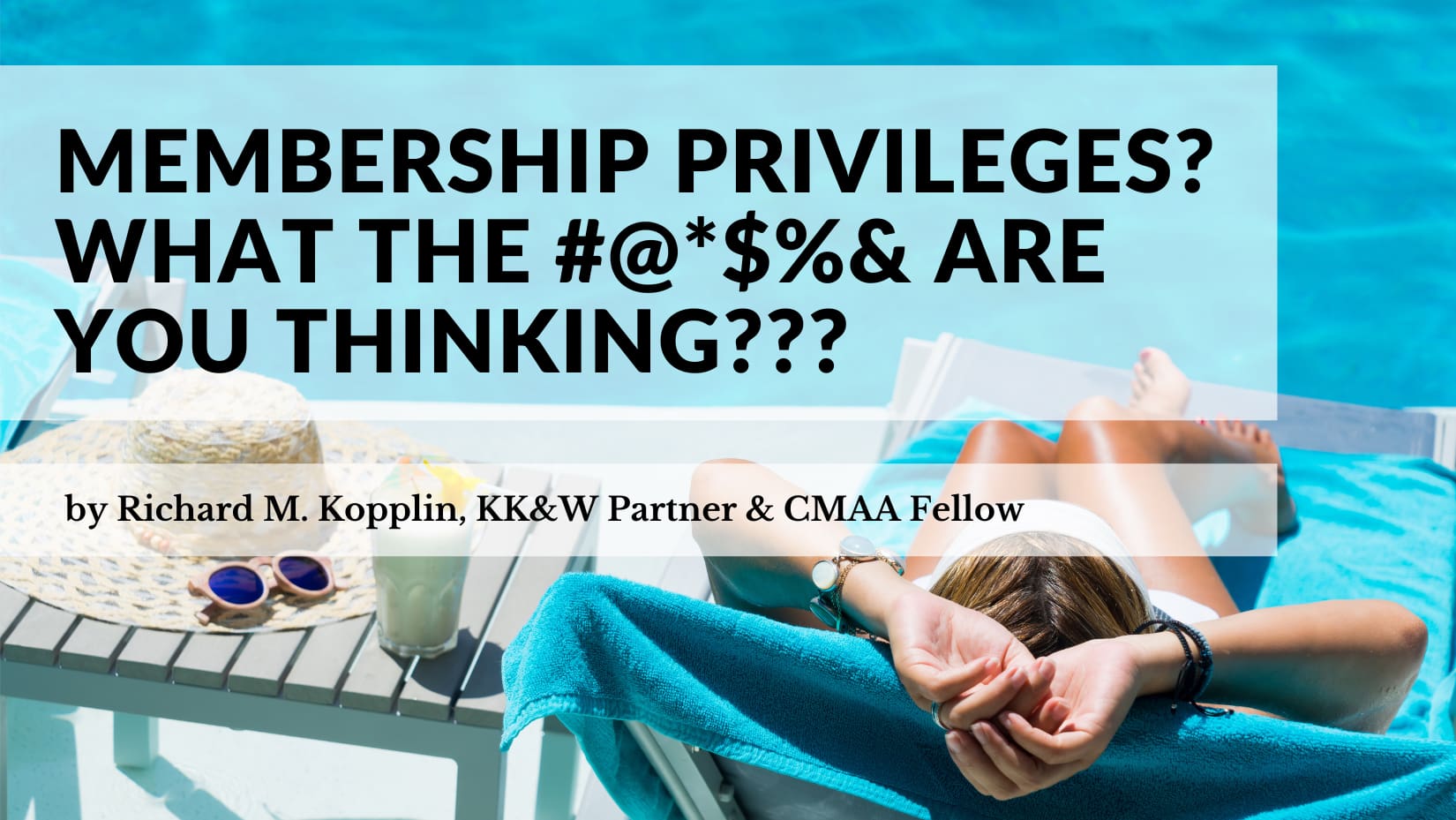In the course of working with club boards and search committees to identify and retain professional executive leadership (GM/CEs) for their clubs, our firm typically conducts a market compensation analysis and assists in the final agreement negotiations with the successful candidate.
I’m continually amazed at how many seemingly competent managers expect membership privileges for themselves and often their families as part of the “normal” benefits provided to them. Where does this entitlement expectation come from?
Some years ago at a club I was hired to manage, one of the first operational standards defined for management and the employee team stated in no uncertain terms that “no employee of the club, including management, will be allowed to consume alcohol on club property.”
Our golf professional staff had been in the habit of playing golf with the members and then having drinks and sometimes engaging in card games after they finished playing golf.
There could be no good end to this story, so I explained to the head pro and his assistants that they should continue their golf games with the members but there would no longer be any consumption of alcohol or participation at the gin table. This standard was endorsed by the club’s board, as board members had realized that some golf employees were acting more like members than employees.
A recently terminated general manager who contacted us had lost the board’s trust not because of his lack of ability but because of the activities of his wife and kids at the pool.
It seems that with his family’s daily use of the pool, his spouse had earned a reputation among employees as “the most difficult member.” Additionally, his two children were entered in all of the swim club events and expected to travel to events at other clubs as though they were children of club members. There could be no good end to that story and there wasn’t.
Sometimes a club president will suggest to the general manager that they should participate in the golf and social events at the club with their spouse. The subliminal message to the manager: “You are one of us.” Well, the reality is the manager/spouse is not “one of them.” Likewise, there can be no good end to this story.
In one instance, the club general manager and his wife won a couples golf event and then the problems really began.
A perspicacious general manager will politely decline invitations to participate regularly in club events and instead play golf on Monday or whatever day the club allows employees to play.
That doesn’t mean that, on occasion, the general manager should not participate if asked to play with a group of members or at the annual board tournament. However, there should never be a perception that “our manager is on the course again today” or, even worse, “they’re playing with their regular group of members on Saturday morning.”
There can be no possible good emanating from general managers and their families becoming active participants and users of club facilities. Not only do employee/member lines become blurred for the general managers but there can also be frustration at the staff level as employees struggle with the “are they employees or members” issue.
This entitlement thinking can undermine any of the positives that a quality general manager may be providing the club because of how emotionally charged this issue can become. It provides fodder for the “bridge ladies” and is the hot topic at the “round table” in the club grille.
Successful club general managers have set clear standards for themselves and their employees when it comes to socializing at the club. These standards recognize that while general managers may, on occasion, enjoy club privileges, they are not entitled to the same membership privileges purchased by their employers, the members.
If they don’t understand that distinction, there can be no good ending to this story.
This much I know for sure.
THE BOARDROOM MAGAZINE – March/April 2024
“This Much I Know for Sure” is a regular feature in BoardRoom magazine beginning Fall 2022. Dick will share some of his reflections based on his 50-plus years of working in the private club business.


